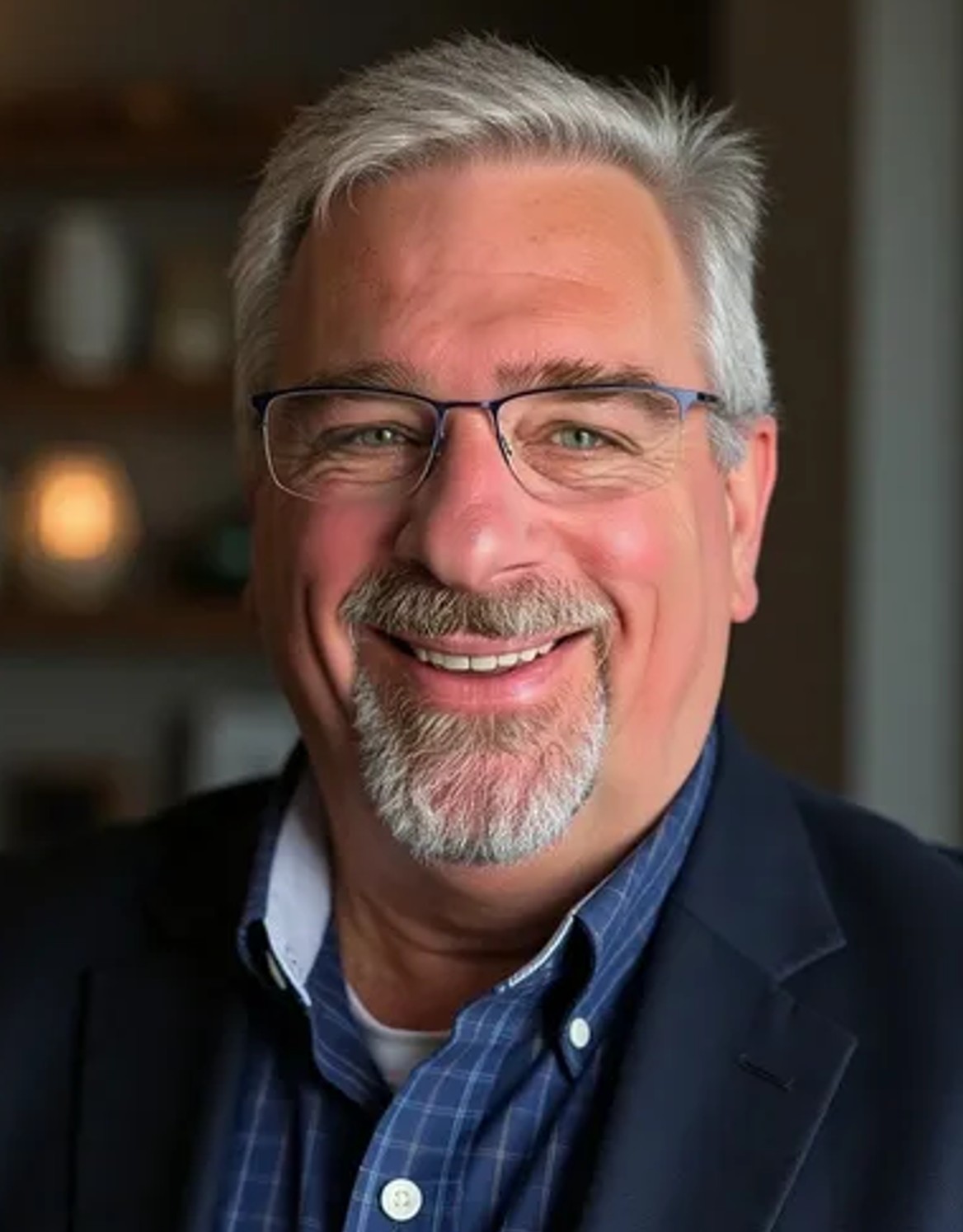Russ Anderson
Reminder Publishing file photo
SOUTHWICK — Select Board member Russ Anderson responded to allegations made by former Select Board member Joseph Deedy that he had spied on Deedy and potentially violated state election laws during May’s Municipal Election during the board’s meeting on Aug. 11.
“I wanted to take a chance to address recent questions and allegations that have circulated regarding Town Hall security, conduct and my own actions. Transparency and public trust are paramount and I believe you deserve the full picture today,” Anderson said, reading from a prepared response during the public comments portion of the board meeting.
At the last board meeting on July 28, Deedy made a number of allegations, including Anderson had spied on him while he was conducting business in Town Hall and that he was in Town Hall on the day of the annual municipal election.
He also responded to an allegation on social media made by John Cain, who ran for and lost by 20 votes the seat Anderson now holds, about potential ethical lapses regarding several members of his family being employed by the town.
Anderson responded to each of the allegations made by Deedy and Cain but also challenged the conduct of Deedy in his role as chair of the town’s Finance Committee.
During the board’s last meeting, Deedy said it “had come to [his] attention that Select Board member Russ Anderson has been reviewing security footage of me.”
About the security footage, Anderson explained the surveillance system’s need and how it’s used in Town Hall and specifically answered the spying allegation.
He said the system is a vital part of the town’s operation, and the cameras used only cover the public lobby of Town Hall where taxes and fees are paid and parking areas.
“[The cameras] are designed for operational safety and serve as our emergency center’s eyes outside in the event of a major incident as the Emergency Operations Center is in the Town Hall basement,” he said, adding that the system records based on movement and overwrites the recording every 30 to 45 days.
He also said the only person consistently monitoring the live feed is the town treasurer because it is used as video proof if there is a customer transaction discrepancy.
To address the spying allegation, Anderson said that after the system was upgraded using a $2,900 grant, he was in the process of calibrating it when he saw Deedy in the public lobby meeting with a contractor.
“I found it odd that he would meet in Town Hall as Mr. Deedy, as Finance [Committee] chairman, has no involvement in any town contracts. The men left the lobby to somewhere else in the building,” Anderson said.
A short time later, he said, Deedy returned to the lobby and waved to a staffer in the clerk’s office to be let inside — which he was — what is considered a “staff-only” secure area, adding that would raise concerns no matter who it was.
After seeing Deedy inside the clerk’s office, he reported it to the town’s Chief Administrative Officer Nicole Parker.
“I simply reported the observation to the town administrator. I did not download footage. I did not share images,” he said, adding that he had over 15 years of professional video production experience helping with law enforcement investigations and documenting Medicare and ambulance fraud.
“I have a complete understanding of the chain of custody and investigative process,” he said.
About Deedy’s and Cain’s allegation that he may have been watching the cameras on Election Day to possibly approach a few last-minute voters, Anderson said it was “baseless and irresponsible.”
“The camera upgrade occurred after the election on voting day. Only one camera had a partial view of the back parking lot. There was no visibility to voters, entrances or voting activities. The idea that I would shag votes from a parking lot using a camera system is ridiculous,” he said.
Anderson did, however, say he was in Town Hall on election day.
“I voted in the morning and spoke briefly with classmates in the parking lot about an upcoming reunion, he said, adding that talking about a “class reunion does not constitute a violation of policy or law.”
The day after Deedy’s allegations, Anderson said he contacted the state Elections Commission and was told investigating potential election law violations was handled locally.
He responded to Cain’s allegation of ethical issues related to several of his family members working for the town.
“Cain’s convenient timing of social media claims suggesting favoritism and hiring are not only misleading, they ignore the rigorous process I put in place,” he said offering his past experience as the town’s fire chief and employment practices he implemented.
Anderson then took a swipe at Cain.
“Mr. Cain forgets that as the fire chief, I hired him as a volunteer firefighter at the request of others, yet he never attended fires or training. A few months later, he posed with the firefighter plate in connection with a campaign for which I believe that was improper,” Anderson said.
Cain was provided with a copy of Anderson’s statement for a response, which he acknowledged receiving. He did not respond with a comment.
Anderson also questioned Deedy’s motives for making the allegations.
“I believe that the public deserves to know the full context of Chairman Deedy’s actions,” Anderson said.
He said it was after Deedy was told last fall he couldn’t use town assets for personal benefit that he began using his position as chair of the committee to retaliate against others.
“He has persistently used his position to retaliate, targeting the senior [center] director, myself, family members, the town administrator, the assistant town administrator and others … and been very vocal about his intent to have them all terminated, a fact well documented by a former Select Board chair, media sources and concerned residents,” he said.
Anderson recounted a meeting of the Finance Committee last November during which Deedy urged the committee to vote to allow him and the vice chair to “access all town financial documents and approve reserve fund transfers up to $20,000 without full committee discussion or even a vote.”
He described granting Deedy that authority as “unprecedented” and gave him “disappropriate authority under the pretense of efficiency…which allowed him to bypass critical checks and balances.”
Anderson also revealed that Deedy has made a “flood” of public records requests “targeting my family, the [Council on Aging], the administrator and their contracts … everything from weed whacker serial numbers to pay records.”
“These tactics are designed to disrupt, not improve, government. These actions are evidence that his motives are personal, not civic,” Anderson said.
Deedy was provided a transcript of Anderson’s statement for comment. His response is below.
“Let’s be clear the two incidents being referred to were entirely separate, and both were mischaracterized. As chairman of the Finance Committee, I am permitted in secured areas when it relates to my work. In this case, I was there to be sworn in for another three-year term.
“The ‘personal use’ accusation refers to my nonprofit borrowing the Senior Center bus not for my personal errands, but to serve the community.
“The bus was used to shuttle folks back and forth for the Farm Parade, and on Thanksgiving, to bring seniors to a dinner where they could share a meal among friends. If that’s being called ‘personal gain,’ I’ll wear that badge proudly.
“As for the claims involved with his family, there was in fact an open meeting violation. That’s a matter of record, not personal attack.
“Southwick deserves open, respectful governance. I believe in focusing on solutions, not stirring conflict. I believe our town is stronger when facts are presented honestly, not wrapped in political theater.
“Faith teaches us to act with integrity, to serve others without seeking credit, and to let our work speak louder than accusations. I’ll continue doing exactly that.”
The open meeting violation Deedy is referring to is related to the monthly meeting hosted in June by the Council on Aging. While the meeting was hosted, it was not posted as required by the open meetings law. The COA was notified of the violation and discussed steps at its meeting the prior week to ensure it doesn’t happen again.


